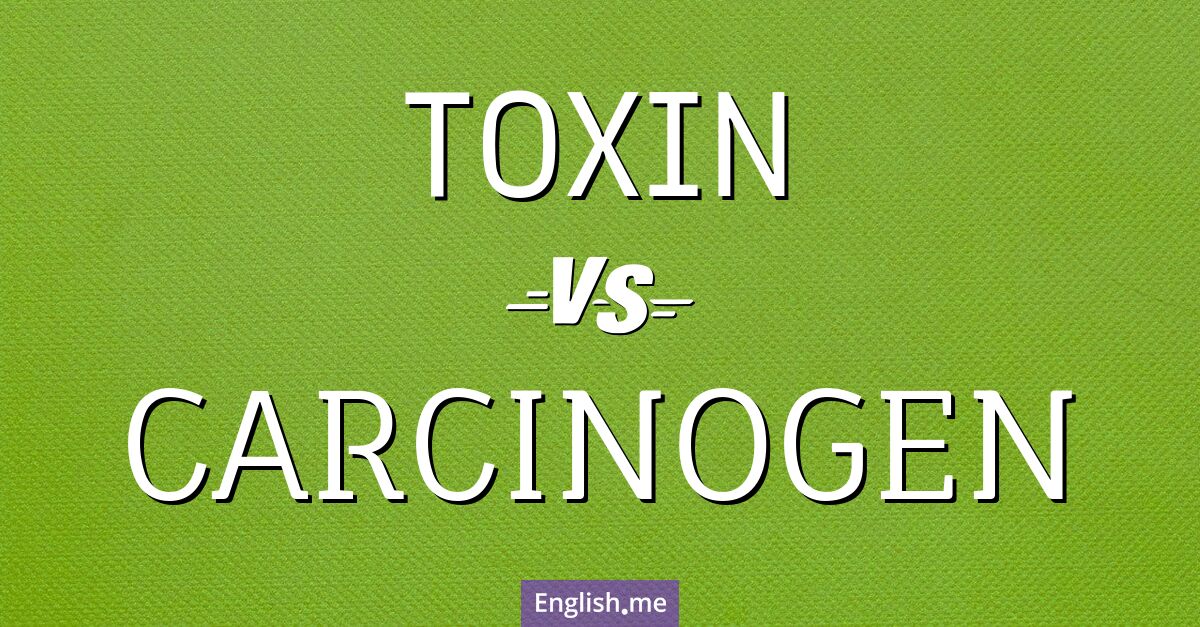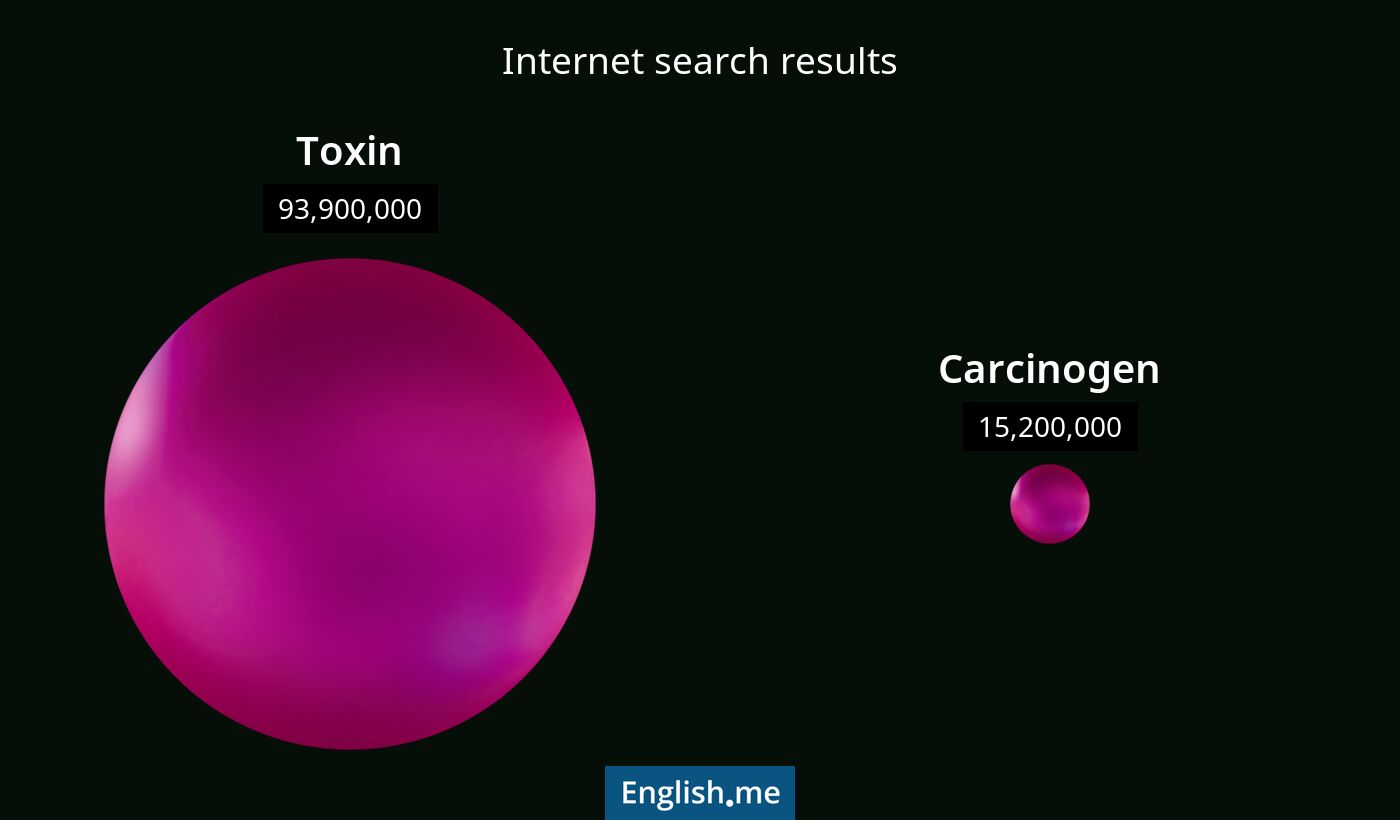Decoding the double danger: "toxin" vs. "carcinogen"

 What is similar?
What is similar?
Both "toxin" and "carcinogen" refer to substances that can have harmful effects on living organisms. They are often studied in the context of health, safety, and environmental science. Additionally, both can be naturally occurring or man-made and are of concern in fields like toxicology and public health.
 What is different?
What is different?
A "toxin" is a broader term that refers to any poisonous substance produced by living organisms, such as bacteria, plants, or animals, which can cause harm to the body. A "carcinogen" is specifically a substance or agent that can cause cancer in living tissue. While all carcinogens are harmful, not all toxins are carcinogens, as toxins can cause a variety of harmful effects, not limited to cancer.
 Which one is more common?
Which one is more common?

 Examples of usage
Examples of usage
Toxin- The snake's bite injects a potent toxin that can paralyze its prey.
- Research is being conducted to determine the effects of environmental toxins on human health.
- Botulinum toxin, though deadly, is used in medicine in very controlled doses for certain treatments.
- Cigarette smoke contains many known carcinogens.
- Asbestos exposure is linked to lung cancer due to its carcinogenic properties.
- The industrial chemical was banned after it was classified as a carcinogen.

 English
English español
español française
française italiano
italiano deutsche
deutsche 日本語
日本語 polski
polski česky
česky svenska
svenska Türkçe
Türkçe Nederlands
Nederlands